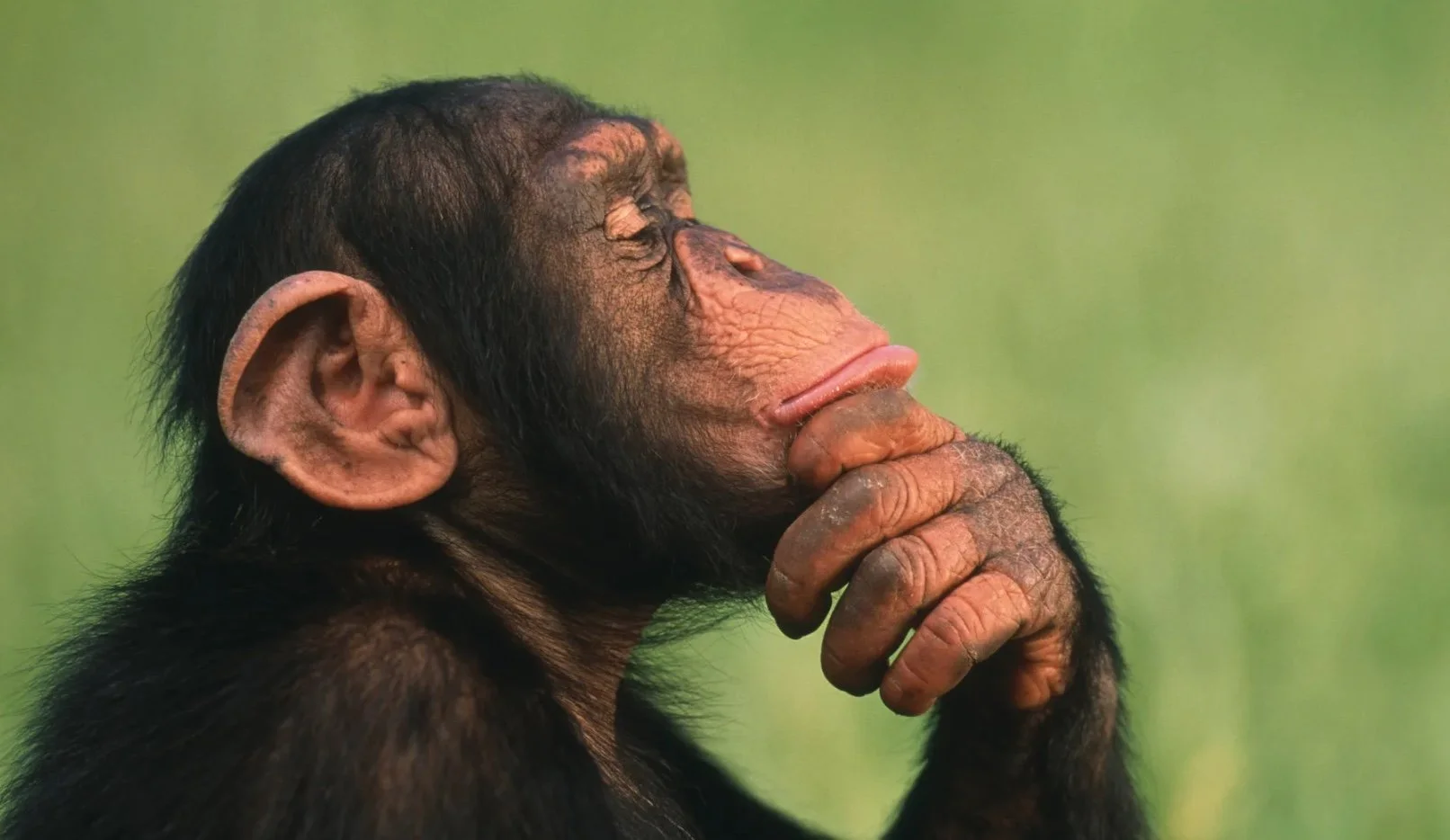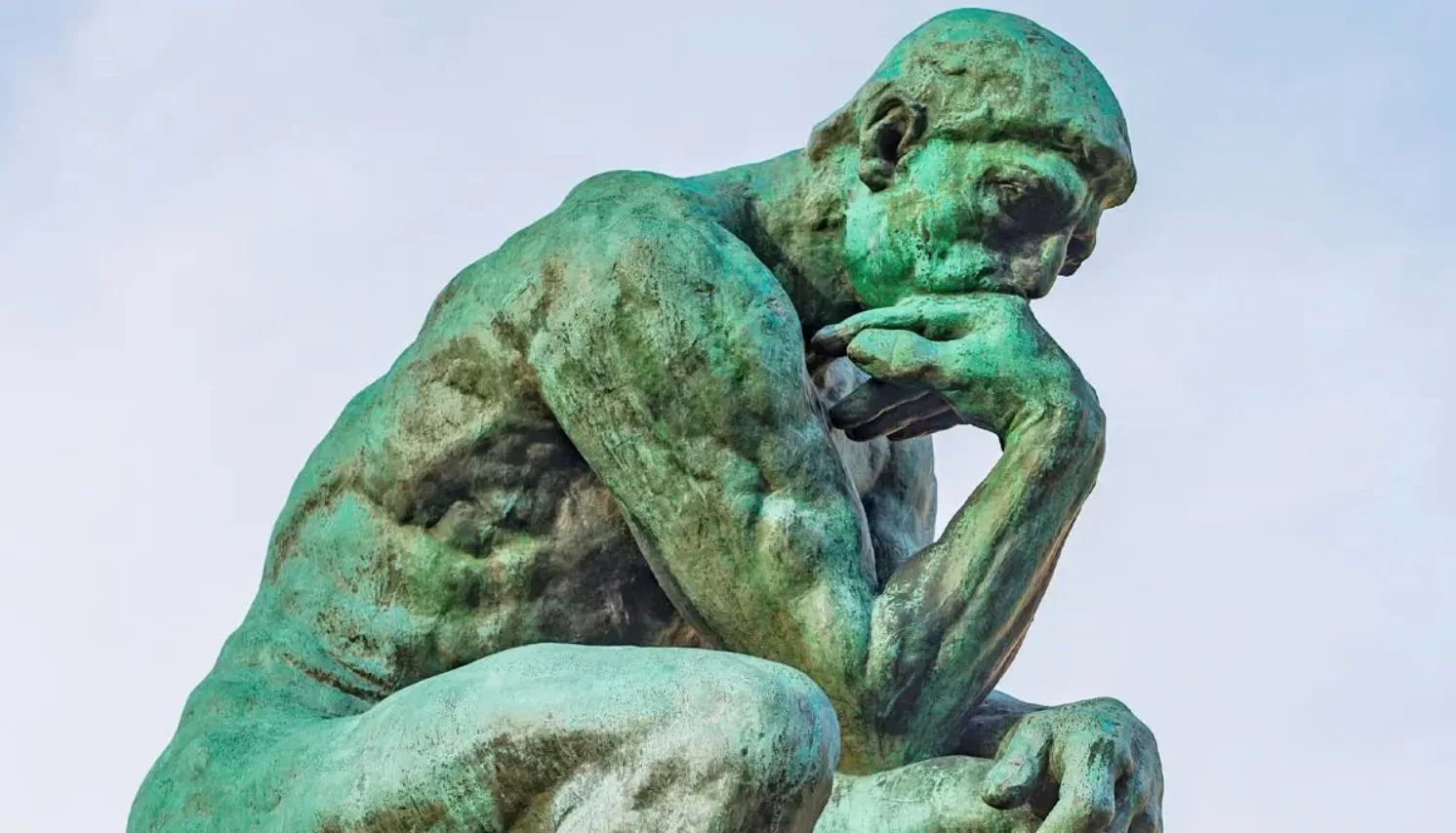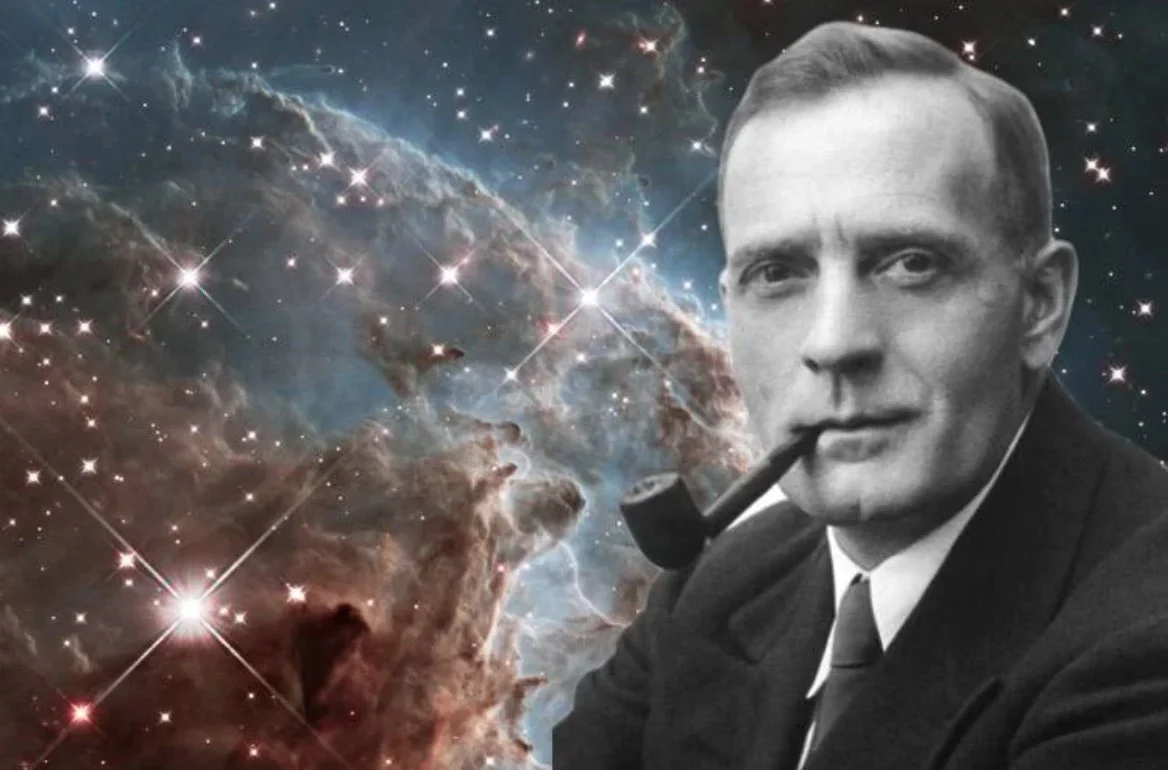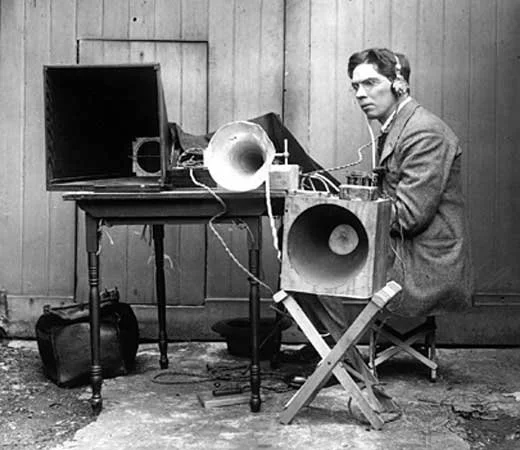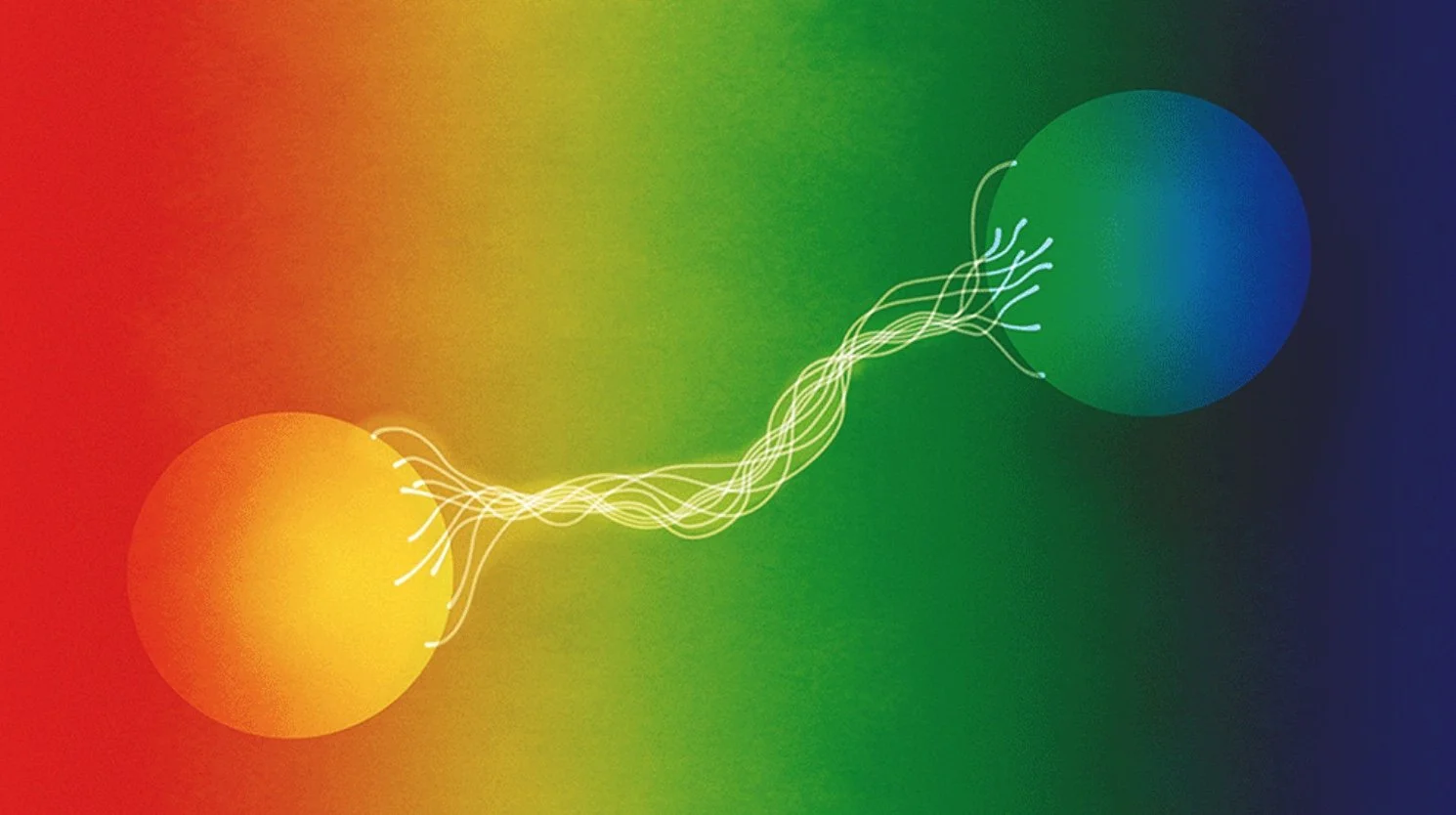Parallel thoughts … with August Rodin’s The Thinker
By The Landlord
“Thinking: the talking of the soul with itself.” – Plato
“Among mortals second thoughts are wisest.” – Euripides
“The more man meditates upon good thoughts, the better will be his world and the world at large.” – Confucius
“There is nothing either good or bad but thinking makes it so.” – William Shakespeare, Hamlet
“We cannot solve our problems with the same thinking we used when we created them.” – Albert Einstein
“No problem can withstand the assault of sustained thinking.” – Voltaire
“The best thinking has been done in solitude. The worst has been done in turmoil.” – Thomas Edison
“Science is a way of thinking much more than it is a body of knowledge.” – Carl Sagan
“Eloquence is a painting of the thoughts.” – Blaise Pascal
“Poetry is thoughts that breathe, and words that burn.” – Thomas Gray
“Thinking is one thing no one has ever been able to tax.” – Charles Kettering
“A man is but the product of his thoughts, what he thinks he becomes.” – Mahatma Gandhi
“A great many people think they are thinking when they are merely rearranging their prejudices.” – William James
“We are verbivores, a species that lives on words, and the meaning and use of language are bound to be among the major things we ponder, share, and dispute.” – Steven Pinker, The Stuff of Thought: Language as a Window into Human Nature
Well, it makes you think. A century ago, on 1st January 1925, the universe suddenly expanded by at least 100,000 times. At least it did, if not physically, but within our own, suddenly blown, tiny human minds, thanks to an academic paper read to a scientific conference, written by Edwin Powell Hubble, the astronomer after which that famous space telescope is named.
Settling what had been known as The Great Debate of 1920 on such cosmological matters, Hubble had, in the run-up to presentation, stated in a letter to a colleague: “You will be interested to hear that I have found a Cepheid variable in the Andromeda Nebula." Interpreting images on the 100-inch Hooker telescope located at Mount Wilson Observatory, California, Hubble's spotting of stars on an area previously thought only to be floating gas, confirmed that the universe vastly extends well beyond our Milky Way into multiple other galaxies, now thought to be at least 200 billion in an observable universe that's 93 billion light-years in diameter. Within in each of those light-years is of course distance light can travel - 5.88 trillion miles. Whatever that calculation comes to it summons in our thoughts stars and planets of a incomprehensible number.
Not just pipe dreams: Edwin Hubble
So, it makes you think. Also a century ago, Archibald Montgomery Low, a British engineer, physicist and inventor who is now described as the father of radio guidance systems, made some predictions about distant future daily human life. Many of Low's ideas at the time in his list were dismissed in the scientific community as "ruthlessly imaginative", a polite way of saying total codswallop. But a recent, widely distributed press release of researchers' findings from the online genealogy service Findmypast, also reveals some surprisingly prophetic ideas coloured by the culture of the times. Low imagines, as reported the London Daily News in 1925, “such horrors” as being woken daily by radio alarm clock, and communications between individuals “by personal radio set”. What a mobile imagination.
It also reports the idea of us breakfasting “with loudspeaker news and television glimpses of events" that would replace “the picture paper” - i.e. newspapers. Low also envisioned mind-to-mind electrical communication, sex determination before birth, shopping by moving stairways and moving pavements, and even more outrageous for the time, women regularly wearing trousers.
Prophetic inventor Archibald Montgomery Low
Low then was seen as something of an eccentric, but his life mission, as well as inventing, was to bring big ideas into popular consciousness with his many books and lectures. As well as predicting, and inventing technology that led to the television, he also wrote that “wind and tide are also to be harnessed to the service of man”, and that "life is to be made far easier by the use of machinery that will do all the heavy and disagreeable work". Green energy and technology still to be universally fulfilled. Not all of his predictions were spot on. In 1926 for example he imagined illuminating streets by herbs (but not, I imagine, by weed-smoking youths on e-bikes) and in 1923 previously, the idea of jets of electrically charged water to replace cavalry. But a century on, most of his ideas aired in 1925 are now extraordinarily accurate.
It does indeed make you think. But the future has progressed in some ways much further than Low predicted. The 2022 Nobel Prize for Physics was awarded to Alain Aspect, John Clauser and Anton Zeilinger for demonstrating the potential to investigate and control particles that are in quantum entangled states. They proved that what happens to one particle in an entangled pair determines what happens to the other, even if they are really too far apart to affect each other - even if in another galaxy. It proved then that multiple realities and multiverses are no longer just a theoretical or philosophical issue, one once muted by Albert Einstein as "spooky action at a distance" and Erwin Schrödinger with his cat in the box.
Always thinking of you … Two distant particles in quantum entanglement
And such thoughts are being used in mind-blowing ways to construct self-correcting quantum computers and communication networks of almost instantaneous speed. Recently Google introduced a new quantum computer chip - Willow - that can with it superconductor Qbits “reduce errors exponentially” and has “performed a standard benchmark computation in under five minutes that would take one of today’s fastest supercomputers 10 septillion (10 to the power of 25) years – a number that vastly exceeds the age of the Universe.”
It makes you think, although now mine are going a little bit fuzzy. But what was the answer to that computation? Was it 42, as shown by Deep Thought after seven and a half million years, in Douglas Adams' The Hitchhiker's Guide To The Galaxy, addressed the answer to the Ultimate Question of Life, the Universe, and Everything. But er, what was the question?
Whether silly or serious, micro or macro, that kind of thinking, especially about the magnitude of the universe or the behaviour of particles at quantum level, makes the old cognitive noggin go rather jumbled, even more profoundly than with a post-New Year's hangover.
So the very process of thought feels paradoxical. If you think about thinking, it feels a bit like you're tripping over your own heels, or losing your mind in the incomprehensible haystack of the universe. And what's particularly tricky is to think consecutively, going in a straight line, or even holistically, all with a frictionless purity, without interruption or going into all sorts of jagged, distracted directions. Our chattering monkey brains find this very difficult.
Thinking and song
Thinking is a vehicle for a whole universe of ideas and emotions. But where does all of this come into songs about thinking, our first topic of the year 2025? Perhaps one way is to think about and define what thought is, and how it is creatively expressed in lyrics and music.
What is thought?
It's vast, varied and difficult to pin down, but the short answer is that thinking is defined as cognitive processes that can happen independently of external sensory stimulation. In other words, thinking is possible anywhere, in a dark room, or elsewhere, separate to what you might see, hear, smell or physically feel.
There are a variety of theories on thought's forms, types and functions, such as Platonism, which regards it as spiritual dialogue or internal monologue of the soul. Meanwhile the Aristotlelian concept defines that in order to think of something or somebody, you have to summon in your mind the essence of them, such as picturing the look or smell of a tree, an animal, a place or a person. Other thought theories come in frameworks such as by associationism - a succession of images or ideas; in behaviourism - by reacting to stimuli; or computationalism - processing information. All of these surely must come into play in song, whether that's fuelled by emotions, or patterns of reasoning, judgement, problem solving, memory, or even unconscious thought, but above all thinking seems to have a distinct language or at least style, and comes in variously shaped, musical and lyrical thought bubbles.
The language of thought hypothesis (LOTH), sometimes also known as thought ordered mental expression (TOME), is a theory formed by the American philosopher Jerry Fodor. It describes the nature of thought as possessing "language-like" or compositional structure (sometimes known as mentalese) with syntax. So do we usually think in phrases and sentences? And if so, how does a songwriter and performer convey this?
A few zedded examples
Obviously the words 'think' and 'thought' will flag up song ideas, and could come across as inner monologues or private thoughts, but there are many other moods and forms. In a famous song previously chosen for another topic, Aretha Franklin uses the idea of thinking as a command to her man to use his brain. Laura Nyro muses on the idea of free-thinking. Marvin Gaye, Tammi Terrell and Harry Nilsson make popular expressions of how thoughts of love preoccupy their minds. Nick Drake wanders gently into the thoughts about, and of, Mary Jane. Herbie Hancock ponders on the inaccuracy of his thoughts. Garbage's Shirley Manson wonders whether her thoughts are sending her into a state of anxious self-deception. Los Campesinos venture to a place of positive thinking, while The Triffids decide it's too hot to think at all.
Thinking in song seems to be an externalisation of the internal in many forms, moods and contexts, but it might also be expressed in the music itself. As the artist Barbara Januszkiewicz puts it: “Jazz is the art of thinking out loud.”
And in a parallel form, the sci-fi writer Isaac Asimov declares that: “Writing, to me, is simply thinking through my fingers.” Are other writers, as well as musicians, in one sense, thinking with their digits too?
Lots to think about then, and as well as those already remarking on the subject above, the New Year has brought many other guests to the Bar, thinking about and having good and bad thoughts. Regular visitor Willie Nelson, as it happens, is having a chat with Yoko Ono.
“Yeah Yoko, once you replace negative thoughts with positive ones, you'll start having positive results,” says Willie. It’s a idea popular in song too.
Yoko’s eyes widen. “I’ve realised that if my thoughts immediately affect my body, I should be careful about what I think. Now if I get angry, I ask myself why I feel that way. If I can find the source of my anger, I can turn that negative energy into something positive.”
“Yes! Stop the habit of wishful thinking and start the habit of thoughtful wishes!” declares the actress and singer Mary Martin with a twirl around our piano.
But while positive thinking is, well, positive, where does creativity come from? The great American astrophysicist and writer Neil deGrasse Tyson reckons that “Rational thoughts never drive people's creativity the way emotions do.”
But how do you think clearly? The poet Wallace Stevens sits quietly in the corner, scribbling then with great consideration and looking around, declares: “Accuracy of observation is the equivalent of accuracy of thinking.”
On that visual front, Johann Wolfgang von Goethe then engages in some nuanced response to Wallace: “I think thinking is more interesting than knowing, but less interesting than looking.”
But there really time to look and think? Not usually. Here’s Audrey Hepburn, who expresses that feeling of thoughts finally catching up on life’s hurried adventure: “Living is like tearing through a museum. Not until later do you really start absorbing what you saw, thinking about it, looking it up in a book, and remembering - because you can't take it in all at once.”
And finally, clutching at straws, and singing and talking another Hollywood star who lost her way in thoughts and more, here’s everyone’s favourite scarecrow in The Wizard of Oz who captures the paradox of thoughts and brains in this famous encounter:
So then, it’s time to turn to your thoughts on thinking as expressed in song. Musing on this is the undoubtedly excellent brain and taste of guest of the week, UncleBen! Deadline for nominations is 11pm on Monday GMT, for playlists published next week. Think on …
New to comment? It is quick and easy. You just need to login to Disqus once. All is explained in About/FAQs ...
Fancy a turn behind the pumps at The Song Bar? Care to choose a playlist from songs nominated and write something about it? Then feel free to contact The Song Bar here, or try the usual email address. Also please follow us social media: Song Bar Twitter, Song Bar Facebook. Song Bar YouTube, and Song Bar Instagram. Please subscribe, follow and share.
Song Bar is non-profit and is simply about sharing great music. We don’t do clickbait or advertisements. Please make any donation to help keep the Bar running:

